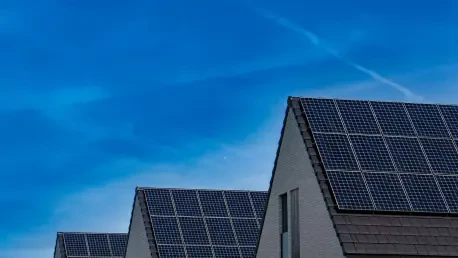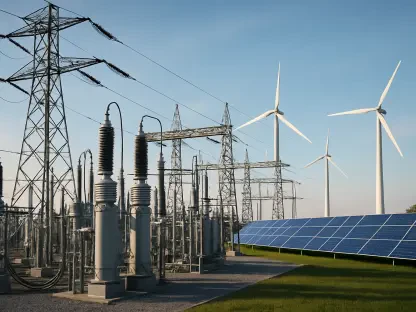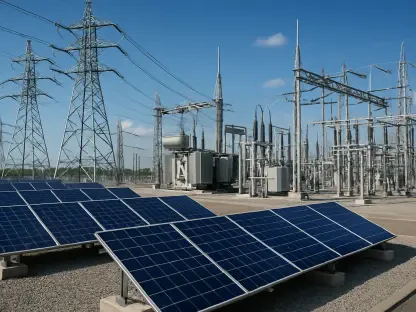In a world increasingly defined by the urgent need to combat climate change, a remarkable stride toward sustainability has emerged from the heart of Atlanta, where a leading flooring manufacturer has set a new standard for renewable energy adoption. This groundbreaking development showcases how industrial giants can lead the charge in reducing carbon footprints while inspiring smaller businesses and homeowners to follow suit. With a powerful commitment to clean energy, the initiative not only addresses environmental concerns but also highlights the tangible financial benefits of such investments. As solar power continues to gain traction as a viable alternative to fossil fuels, this achievement stands as a beacon of hope, demonstrating that sustainable practices can align with economic sensibility. The story behind this milestone reveals a broader movement toward a greener future, where innovation and responsibility intersect to create lasting impact across diverse sectors.
Pioneering Sustainable Energy in Manufacturing
A Monumental Solar Installation
The introduction of a 1,040-kilowatt solar system atop a major manufacturing facility in Atlanta marks a historic achievement in the region’s push for renewable energy. This sprawling installation, comprising nearly 2,000 solar panels, is designed to slash carbon emissions by an impressive 1,014 tons each year, setting a powerful precedent for industrial sustainability. Completed in under four months through a strategic 30-year energy procurement agreement with a renewable energy provider, the project exemplifies how swift and decisive action can yield significant environmental benefits. Beyond its immediate impact, this facility serves as a model for other manufacturers looking to integrate clean energy solutions into their operations. The scale of the project underscores the potential for large-scale solar adoption to transform energy consumption patterns in industries traditionally reliant on fossil fuels, paving the way for a cleaner, more sustainable industrial landscape.
Driving Corporate Responsibility Forward
This ambitious solar endeavor is more than just a technological feat; it reflects a deep-seated commitment to corporate responsibility and sustainable manufacturing practices. Described as a critical first step by the continuous improvement manager at the company, the initiative aligns with broader goals of reducing environmental impact while maintaining economic viability. The decision to invest in such a substantial solar array demonstrates a forward-thinking approach, balancing profitability with planetary well-being. This move also sends a clear message to other corporations that adopting renewable energy is not only feasible but also advantageous in the long run. By prioritizing eco-friendly practices, the company sets an example that could inspire a wave of similar initiatives across the manufacturing sector, encouraging a collective shift toward greener operations and fostering a culture of accountability in addressing climate challenges.
Solar Energy’s Broader Impact and Accessibility
Empowering Individuals and Small Businesses
While large-scale projects like the one in Atlanta capture headlines, the benefits of solar energy extend far beyond industrial applications, reaching individual homeowners and small businesses eager to embrace sustainability. Personal success stories highlight the transformative power of solar installations, with some homeowners reporting energy bills reduced to zero for extended periods after adopting solar panels. This accessibility underscores the democratization of clean energy, making it a practical choice for diverse users seeking to lower costs and environmental impact. Resources that provide transparent quotes and connect consumers with trusted installers further simplify the transition, often resulting in significant savings on installation expenses. As solar technology becomes more mainstream, its adoption across various scales signals a growing consensus that renewable energy is a cornerstone of a sustainable future, benefiting both the planet and personal finances.
Enhancing Eco-Friendly Technologies
The ripple effects of solar energy adoption are evident in its ability to support other environmentally conscious technologies, amplifying overall sustainability efforts. Affordable solar power can facilitate the integration of innovations like electric vehicle charging stations and energy-efficient heat pumps, creating a synergistic approach to reducing reliance on non-renewable resources. Partnerships with companies offering advanced solutions in these areas further enhance the feasibility of such integrations, ensuring that clean energy becomes a foundation for broader eco-friendly advancements. Financial incentives, including tax credits available through current legislation, continue to encourage this shift by offsetting initial costs for both individuals and businesses. This interconnected web of sustainable technologies, bolstered by solar energy, illustrates a promising path forward, where each advancement builds upon the last to create a more resilient and environmentally responsible society.
Reflecting on a Sustainable Milestone
Looking back, the completion of Atlanta’s largest rooftop solar facility by a prominent flooring manufacturer stood as a defining moment in the journey toward renewable energy adoption. This initiative not only showcased the potential for industrial leaders to drive significant environmental change but also highlighted the practical advantages for smaller entities inspired to follow suit. The success of nearly 2,000 solar panels generating substantial energy savings and emission reductions offered a glimpse into a future where clean energy could become the norm. Moving forward, the focus should center on expanding access to solar resources and incentives, ensuring that businesses of all sizes and individual households can participate in this green revolution. By building on such achievements, stakeholders across sectors can collaborate to address remaining barriers, fostering an environment where sustainable practices are not just aspirational but achievable for all.









